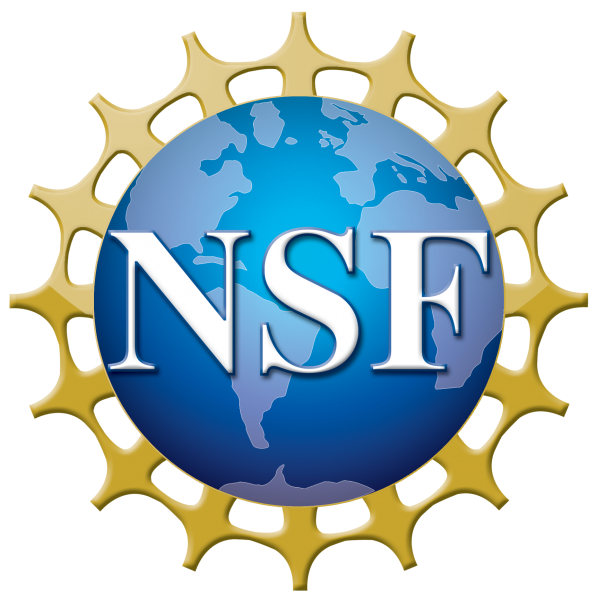
Michigan Tech has been awarded a grant aimed at training the next generation of data science professionals. The title of the five-year research project is, “Integrative Training in Data Science-Enabled Sensing of the Environment for Climate Adaptation (DataSENSE).” The $700K project is a National Science Foundation (NSF) Research Traineeship (NRT) Award to Train Ph.D. students in Data Science-Enabled Sensing of the Environment.
Asst. Prof. Laura Brown, Computer Science, is PI of the project. Co-PIs and Senior Personnel are listed below.
Climate change, one of the most complex issues facing humankind, is causing profound environmental impacts, and emerging cutting-edge data science-intensive tools offer new approaches to better understand and address these disruptive environmental changes. These new tools include sensor technologies, growth in the amount and availability of sensor data, advances in computational methods, and the expansion of computational power.
“These new tools have the potential to contribute meaningful solutions for and understanding of multiple environmental challenges,” says Laura Brown, project PI. “But realizing their potential requires that next-generation scientists and engineers understand and can apply the tools in culturally responsive and equity-minded ways.”
Brown says that the goal of the NRT project is to provide integrative, culturally-responsive, and equity-minded training, research, and mentoring experiences for doctoral students, educating future professionals prepared to address complex, climate-adaptation-related problems.
“This NRT grant is a game-changer,” says Brown. “It recognizes that Michigan Tech has all of the required pieces to provide students with this type of training. The grant allows us to connect the pieces into a coherent and holistic student experience. Effective steps to mitigate the effects of climate change are evolving rapidly and future industry leaders will need transdisciplinary training to keep pace with and drive the necessary transformations.”
This is Michigan Tech’s first NRT grant, reflecting the growing importance of computing-centered efforts to Michigan Tech’s research mission. “This work tackles a critical societal problem through the integration of climate science, sensorization, and data science,” says Dennis Livesay, Dave House Dean of Computing. “No one piece is sufficient, but bringing them together allows us to simultaneously work to reduce the impact of the climate crisis and train the next generation of interdisciplinary data scientists.”
“The NRT integrative research and training experiences are framed around the data science lifecycle and three knowledge pillars: sensors and sensing technologies, computational analysis, and application domain knowledge,” says Brown. “Along with these skills and competencies, the full data science lifecycle also includes the professional development of students as required by industry, government, and academic employers.”
DataSENSE Integrated training elements include interdisciplinary curricula (courses and graduate certificates), interdisciplinary research, summer experiences, research seminars and symposia, career development training, outreach, and near-peer mentoring.
DataSENSE trainees will also be presented with leadership opportunities in the organizational aspects of the training activities; in advancing professional skills in scientific communication (reading, writing, and presentations), and in career development training to grow skills in leadership, negotiation, team building, networking, and project management.
“Doctoral education in today’s world is about providing students with opportunities to contribute to society, wherever they see fit – in the academy, in industry, as entrepreneurs, in government,” remarked Will Cantrell, Associate Provost for Graduate Education and Dean of the Graduate School. “The NRT experience enhances Michigan Tech’s ability to do just that.”
Brown says that Michigan Tech NRT personnel will recruit a diverse Ph.D. trainee pool; develop training activities that support professional development, mentoring, and student retention; and mentor students in interdisciplinary, climate-related, complex research problems. The NRT will also provide career development training to prepare students for academic or non-academic career paths.
“DataSENSE faculty, from six Michigan Tech Ph.D. programs and three colleges, will share with our Ph.D. students their expertise in data science, machine learning, computer vision, geological engineering, environmental engineering, sensing technology, atmospheric science, and forestry science,” says Brown. “The NRT project will support 15 trainees in their graduate education for the first two years of study. The DataSENSE project also plans to include additional students in many of the training elements, including research seminars and symposia, interdisciplinary courses, and graduate certificates.
Principal Investigator (PI)
- Laura Brown, Associate Professor, Department of Computer Science; Director, Data Science Graduate Program; Director for Data Science Initiatives, College of Computing
Co-PIs
- Dukka KC, Professor, Department of Computer Science
- Thomas Oommen, Professor, Department of Geological and Mining Engineering and Sciences
- Shiliang Wu, Professor, Department of Geological and Mining Engineering and Sciences
Senior Personnel
- Tao Liu , Assistant Professor, College of Forest Resources and Environmental Science
- Sidike Paheding, Assistant. Professor, Department of Applied Computing
- Ashraf Saleem, Assistant. Professor, Department of Applied Computing
Since 2014, NSF has supported over 130 institutions across 43 states, the District of Columbia, and Puerto Rico via the NRT program. NRT projects are focused on supporting graduate students through innovative, convergent research and training experiences, with approximately 1500 trainees currently participating in NRT projects.